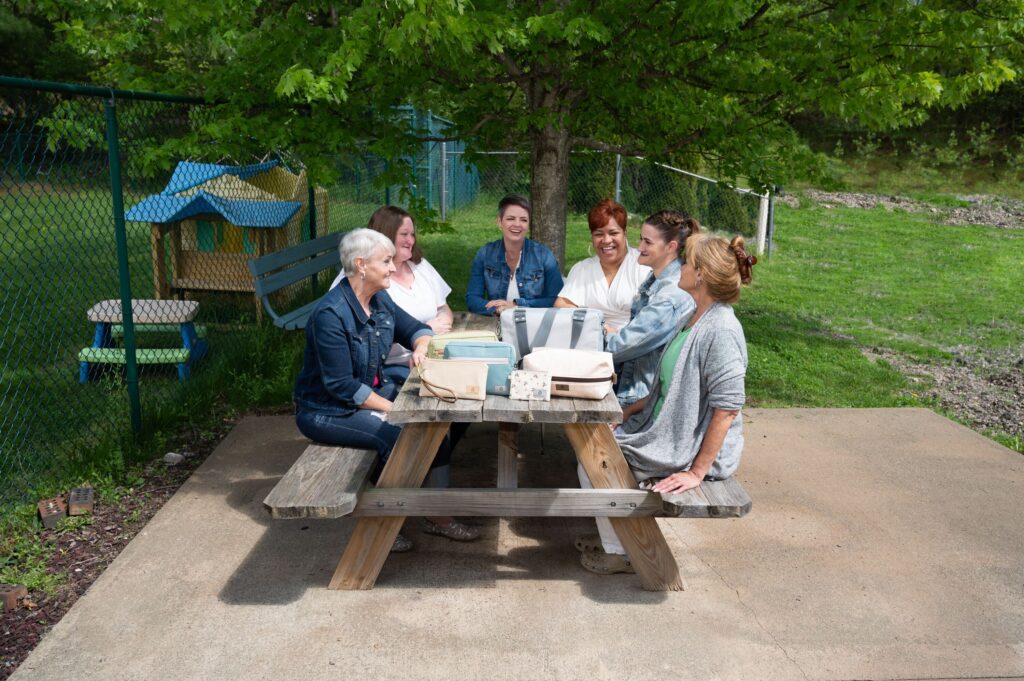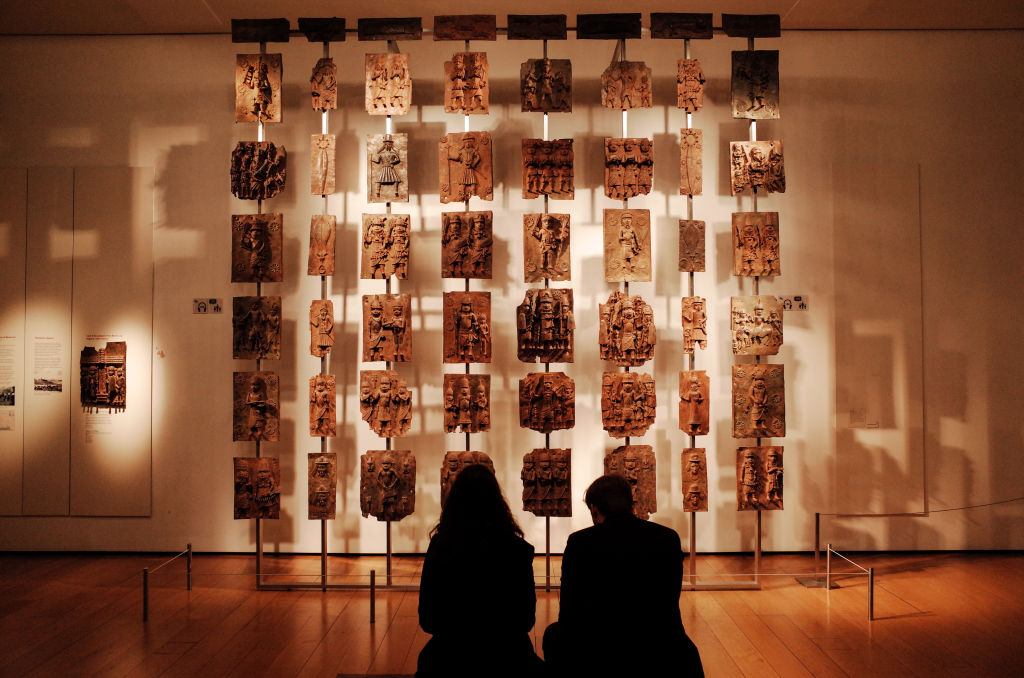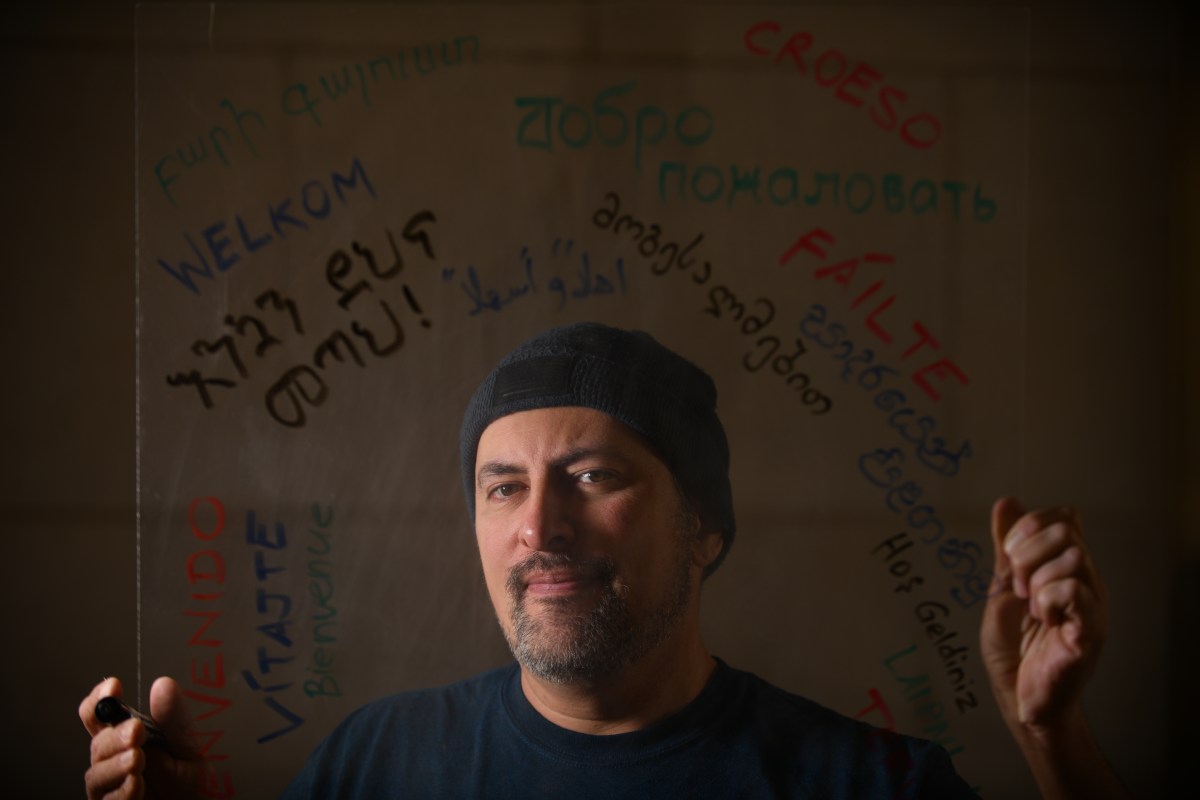There’s something magical about discovering a new word that speaks to you — one you’d underline in a book or pause and rewind after hearing on TV and maybe start sprinkling into conversation.
Sometimes these words are wildly relatable and end up going viral on social media (think: bed rotting). Other times a new-to-you phrase captures a seemingly impossible-to-articulate feeling in a way that’s so spot on, you wish you knew about it sooner.
For the love of unique words, we’re highlighting some beautiful terms in other languages, from Swedish and Spanish to Greek and Arabic. We hope you find something on this list that makes you feel seen, understood, and maybe a little more inspired to stop for “fika” with a friend.
Soubhiyé | Lebanese Arabic
Back in February 2023, Merriam-Webster asked non-native English speakers to share words from their native language they thought were “perfect” but don’t “have an English equivalent.” Among the submissions was “soubhiyé”: a Lebanese Arabic word that means the quiet time in the morning when you’re the only one awake and have time for yourself.
Stephanie Thompson, who shared the word on X, expanded on the meaning to NPR: “Or you can invite a friend or neighbor to join you for coffee and tea and you have some catch-up time together before the day get[s] started,” she wrote. “My mother often used to have a soubhiyé by herself or with one of my aunts or friends. And now that I am a mom of two myself and I don’t sleep in anymore, I really value that time when you can just gather your thoughts and have that moment to yourself.”
How to embrace soubhiyé: Before diving into any responsibilities, cherish the first moments of the morning as a time to start your day on a good note. This may look like slowly drinking a cup of coffee, spending 10 minutes looking out a window, or simply giving yourself the space to process your thoughts.
Fika | Swedish
“Fika” (pronounced fee-kuh) is the Swedish concept of taking a coffee and pastry break. But it’s more than a mere descriptor — it’s also an important ritual for connecting with friends and co-workers and taking time for yourself. Used as both a verb and a noun, fikas can happen anytime and anywhere, whether it’s at home on your couch or at a cafe, per the Scandinavian travel agency Nordic Visitor.
How to embrace fika: Make it a daily routine to carve out downtime to enjoy a hot drink and sweet treat with a friend.
Meraki | Greek
Pronounced may-rah-kee, “meraki” is a Greek word that captures the idea of putting your soul into something you’re doing, whether it’s pursuing a hobby, setting a table, or moving your body. If you’re focusing fully on one thing and putting passion into that thing, that’s meraki.
How to embrace meraki: Resist multitasking and give single-tasking a try. Approach whatever is in front of you — a meal, a conversation, or a walk — with love, attention, and care.
Jakoś to Będzie | Polish
A beloved phrase in Poland, “Jakoś to będzie” (pronounced ya-kosh toe ben-jay) means “things will work out in the end.” According to the BBC, it’s often said to encourage going after big dreams, taking risks, and getting out of your comfort zone.
“It’s the unwavering certainty that we can do anything, no matter what obstacles we face along the way,” said Beata Chomątowska, co-author of Jakoś to Będzie. Szczęście po Polsku, which translates to “Jakoś to będzie, the Polish way of life” in English.
How to embrace Jakoś to będzie: Try something new, whether it be turning your hobby into a career, pursuing an activity you’ve always been curious to experience, expanding your palate at a restaurant in a different neighborhood, or opting for a new hairstyle.
Sielunmaisema | Finnish
Per the travel website Visit Finland, the Finnish word “sielunmaisema” represents “a landscape you always carry in your heart — the one that immediately feels like home.”
How to embrace sielunmaisema: Think of places imprinted in your memory. Maybe it’s somewhere you met someone important to you or where you spent your formative years. Consider looking at pictures and listening to music that takes you back.
La Passeggiata | Italian
An Italian word, “la passeggiata” means “to go for a walk.” However, it’s not used to describe just the act of walking, but rather the ritual of taking a stroll in the late afternoon or early evening before or after dinner. This time is used to socialize, get out of the house, and walk with “no destination,” according to Tourissimo Travel.
How to embrace la passeggiata: Live like the Italians and take a leisurely evening stroll. Perhaps even make small talk with a neighbor or two.
Utepils | Norwegian

“Utepils” (pronounced ooh-ta-pilz) means going outside on a nice sunny day and enjoying a beer. While this may seem straightforward, it’s an especially treasured experience in Norway.
“The literal meaning is easily understood in English. But to truly grasp its cultural context, one would need to understand that Norway is dark and cold for most of the year and, even in warmer weather, it can be rainy and overcast,” The New York Times explains. “So sitting outside with a beer on a sunny day is a rare pleasure. And all of that is encapsulated neatly into a single word.”
How to embrace utepils: Next time it’s sunny out, grab a drink, sip it outside, and stay awhile.
Sobremesa | Spanish
In Spanish, “sobre” means “over” and “mesa” means “table,” so “sobremesa” means “over the table.” But the word encapsulates so much more than its literal translation. It’s used to represent the special time after a meal is finished when everyone lingers at the table to socialize and enjoy one another’s company.
How to embrace sobremesa: Instead of getting up to do dishes after finishing your plate, take a beat to chat and keep the conversation going. The longer, the better.
Havâ do Nafaras | Persian
This Persian phrase literally means “the weather is for two people.” It describes rainy, slightly chilly weather that makes for the romantic opportunity to go on a walk with someone you love.
How to embrace havâ do nafras: Is it cloudy out? Bundle up, grab a loved one’s hand, and head to the streets for a sweet stroll.
Hurkle-Durkle | Scottish
“Hurkle-durkle” is a 19th century Scottish term for lounging in bed “when one should be up and about,” per The Scotsman. (Basically, bed rotting, the Scottish edition.)
How to embrace hurkle-durkle: Take time to cozy up underneath your sheets and stay awhile. The to-do list can wait.
Flaneur and Flaneuse | French

The French word “flaneur” defines the strolling man who idles or wanders, typically in city settings. The concept has been depicted in art, poetry, literature, and modern television.
Lauren Elkin, an author who moved to Paris in 1999, adapted the word into its feminine form. She writes in her book Flâneuse: Women Walk the City in Paris, New York, Tokyo, Venice, and London, “The flâneuse is not merely a female flâneur, but a figure to be reckoned with, and inspired by, all on her own.” She is anyone open to the “liberating possibilities of a good walk.”
How to embrace being a flaneur/flaneuse: Put on a pair of comfortable shoes, wander, and look out for the many “glimmers” that can be found when we walk.
Ichi-go ichi-e | Japanese
Interpreted as “for this time only” or “once in a lifetime,” “ichi-go ichi-e” is a Japanese proverb dating back to 16th century tea ceremonies that describes the concept of cherishing the moment as it cannot be repeated. It’s commonly used as a reminder to make the most of every gathering and encounter.
Recently, the phrase was described in the “Kyoto” episode of Netflix’s Somebody Feed Phil. While eating a meal made by Danish chef René Redzepi with series host Phil Rosenthal, Intertrend Communications CEO Julia Huang explains, “I might have the same dinner, René might cook for us, he might even have the same ingredient. But you can never re-create the moment.”
How to embrace ichi-go ichi-e: Take time to pause throughout your day and appreciate all the sights, sounds, smells, and little moments that are non-replicable.
Apapachar | Spanish
“Apapachar” is a Spanish term derived from Nahuatl and means to hug, cuddle, or spoil. However, in Mexico, it’s often used to describe the act of embracing or caressing someone with the soul.
How to embrace apapachar: Give extra TLC to someone in your life who’s feeling sick or is simply in need of a pick-me-up.
Dolce Far Niente | Italian
An Italian saying all of us should learn to apply to our lives, “dolce far niente” translates to the “sweet[ness] [of] doing nothing.” It can also be understood as enjoying the moment or being in a relaxed state. If this sounds familiar, you may have read about the similar concept of “bel far niente,” which means “the beauty of doing nothing,” in Elizabeth Gilbert’s Eat, Pray, Love — or heard “dolce far niente” mentioned in the film adaptation.
How to embrace dolce far niente: Put your phone away and your feet up. Maybe even take a siesta while you’re at it.
Friluftsliv | Norwegian
Somewhat similar to the concept of “leave no trace” while exploring the outdoors, the Norwegian term “friluftsliv” describes the idea of de-stressing in nature without disturbing it. It literally translates to “free-air life,” per The Guardian, and was coined by playwright Henrik Ibsen in his 1859 poem “On the Heights.”
How to embrace friluftsliv: Experience the outdoors in a way that soothes you. Might we suggest birdwatching?
Inyeon | Korean
“Inyeon” is a Korean word that refers to the bond or tie between two people over the course of their lives, but it also captures the idea that they were destined to cross paths.
Celine Song, writer-director of the 2023 film Past Lives that explored the concept of inyeon, told Newsweek: “[It means] you are connected to each other in lives before this one and also that you will be connected in the lives after this one. And in every lifetime, it’s going to mean something a little different.”
How to embrace inyeon: Honor every interaction, whether you’re falling in love with someone, chatting with a barista, or sitting next to a stranger on the subway.












